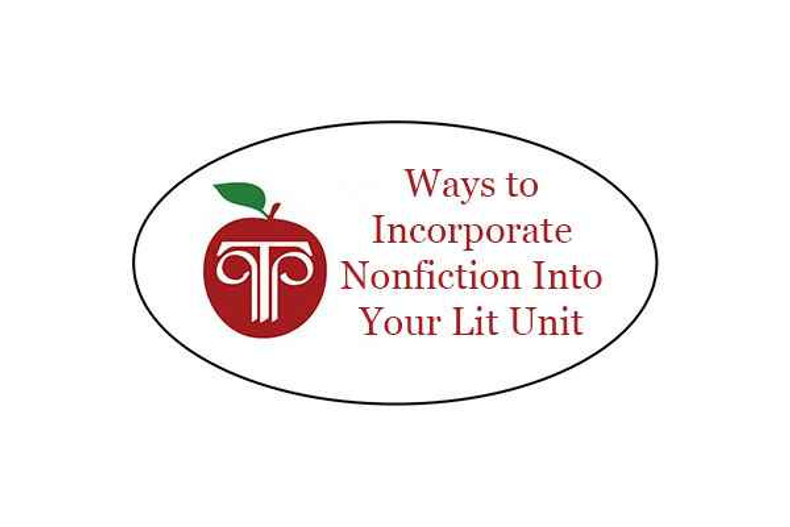We're living in The Information Age, a time when there is more information about EVERYTHING more readily available than ever before in human history. Yet, ironically, students' knowledge of background and general information seem to be lacking more than ever. How can we fix this?
We can broaden our students' knowledge base, without giving up the important skills and lessons learned by studying works of fiction, by incorporating nonfiction work within our literature units. This is easier than it may at first seem.
Spontaneous Web Quests
When you come upon allusions in literary works, do a quick Internet search. If you leave a computer and screen set up for this purpose, it's easy to take a few minutes to do a little "aside" to get additional information to share with students.
If you don't have a dedicated computer and screen readily available, let students make use of their smart phones or laptops. Throw the topic out there to students and say, "You have one minute to find information about [Topic]. Go!" and see what they can come up with. Let various students share what they have found. Even doing a few of these throughout will spice up your literature unit.
Allusion Assignments
Go through the section of the book you are studying and find allusions to nonfiction topics such as historical events, people, places, or things. Make a list, and assign one item for each student to research and orally report on.
Related Reading
Every fiction story has nonfiction elements in it or related to it that could be investigated. People, places, things, historical events, careers, social issues and more make great topics for investigation. You can jazz it up by making your students Super Sleuths who are sent out to investigate things. Put some detective or super-hero graphics on your topic assignment sheets. You could make each assignment worth x number of points. Students who accumulate y number of points for their detective work could be designated Super Sleuths and receive some award/reward.
Guest Speakers
Read, answer questions, "rinse and repeat" gets boring. Break up your reading schedule with volunteers from your community who are experts in topics related to your story. Your students will benefit from their knowledge and will appreciate the change of pace.
Documentaries
Just about every fictional story has some topic related to it for which a documentary video has been made. Choose a short YouTube video or a longer movie on some relevant topic. Match the length of the video with the importance of the topic you have chosen in relation to the book you are reading. For example, if you are reading The Devil's Arithmetic, you could spend a whole class period watching a video about the Holocaust or a shorter video about Jewish customs.
What's It Like To Be A ...
One good way to relate literary fiction to real life is to have students investigate careers related to things people do in the book. In To Kill a Mockingbird, for example, students could investigate being a lawyer, a judge, a sheriff, clerk of the court or any other jobs related to the criminal justice system. They could investigate being a writer, a horticulturist (for Miss Maudie's flowers), or a fireman (putting out the fire next door), or careers in journalism. The list is almost endless.
This kind of an assignment addresses what some of your students are starting to think about (what they'd like to do with their lives), it helps them learn about the world around them and what other people do, it teaches them about opportunities and possibilities that exist, and it broadens their background knowledge.
Research Alternatives
You can always assign the customary research paper in your literature unit, but if you're already swamped with papers to grade, these other options will help your students increase their background knowledge, relate the fictional reading to real life, exercise researching, reading, and other vital ELA skills, provide a welcome break in your "read and discuss" routine, and check off that "related nonfiction" standards requirement too!




